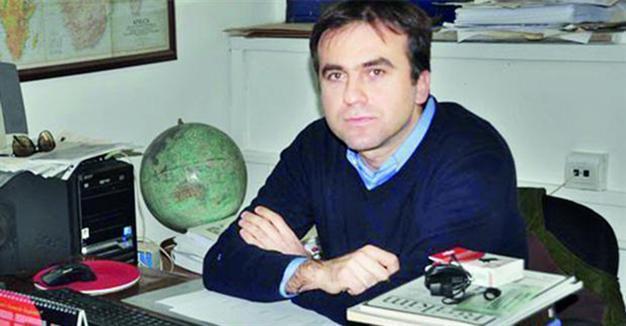Turkish academic acquitted of ‘terror propaganda’ over exam question on PKK leader
Mesut Hasan Benli – ANKARA
 A Turkish court has acquitted an academic who faced seven years in jail for “terror propaganda” over an exam question about two writings by Abdullah Öcalan, the jailed leader of the outlawed Kurdistan Workers’ Party (PKK).
A Turkish court has acquitted an academic who faced seven years in jail for “terror propaganda” over an exam question about two writings by Abdullah Öcalan, the jailed leader of the outlawed Kurdistan Workers’ Party (PKK). During the case’s first trial at the Ankara’s Second Criminal Court for Serious Crimes on Feb. 3, the prosecutor demanded the acquittal of Assistant Professor Dr. Reşat Barış Ünlü, an academic at Ankara University’s Faculty of Political Science.
The court ruled in favor of the Ünlü’s acquittal at the trial, which was attended by several academics and lawmakers. The indictment had demanded seven years of prison for Ünlü.
For the final exam of his course “Political life and institutions in Turkey,” Ünlü asked students to compare a 1978 leaflet by Öcalan with a more recent piece from 2012 in terms of its implications for Turkey’s Kurdish question.
The question asked students to consider this comparison in terms of global and local changes since 1978, as well as transformations undergone by the Kurdish movement and Kurdish society.
The indictment against Ünlü claimed his question was an attempt to “legitimize” Öcalan’s ideas and amounted to “terror propaganda.”
Posing a question about Öcalan aimed at “legitimizing his opinions and imprinting on minds that he is a political leader,” the indictment said, adding that this was both “terror propaganda and a compliment to the head of the illegal organization who is serving a life sentence.”
The dean’s office at Ankara University’s prestigious Political Science Faculty has sent its academic judgment to the court, stressing the importance of academic autonomy and freedom of expression.
The office reportedly reminded the court that academics focusing on the Kurdish issue had used Öcalan’s writings numerous times.
















